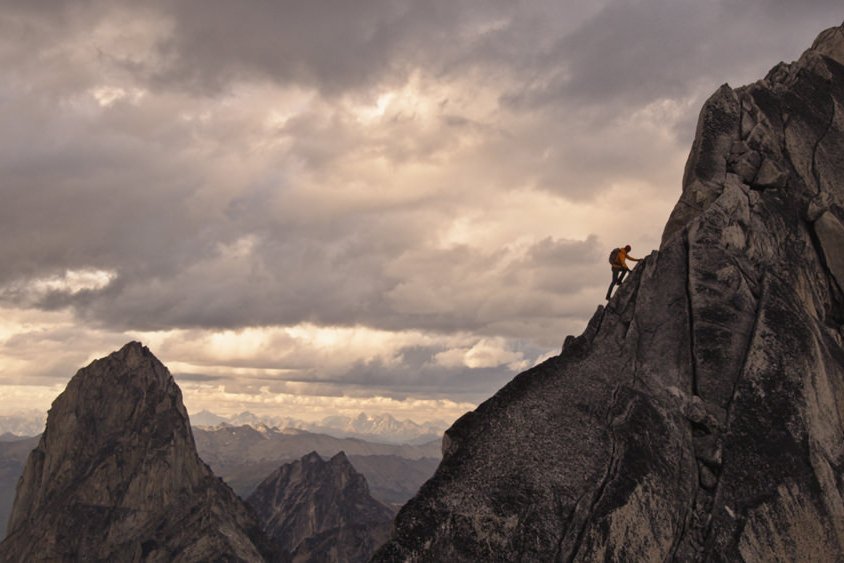
MOUNTAIN (Jennifer Peedom). 74 minutes. Opens Friday (January 12). See listing. Rating: NN
Ethical questions around mountaineering and winter sports tourism are at the heart of Jennifer Peedom’s latest documentary, a philosophical follow-up to her 2015 film, Sherpa.
In the wake of a 2014 avalanche at Mount Everest that killed 16 Nepalese guides, that doc focused on the disproportionate risks local porters take in guiding hordes of rich, adventure-seeking foreign clients up the world’s tallest peak.
Mountain offers a similar critique, but goes big picture in the form of an essay film comprised of original and archival footage shot at mountains around the globe with narration by actor Willem Dafoe and classical music.
In pondering the human desire to climb and conquer, Peedom posits that perceptions of mountains evolved throughout history from indifference and reverence into commercialism wrested on pleasure-seeking insanity, with the rise of colonialism and urbanism accelerating our desire for the kind of disorder and risks only untamed nature can offer.
One of the film’s most effective shots comes early on and shows a man in a red jacket dwarfed by the wide, flat rockface he is carefully scaling. It’s a striking visual that encapsulates the existential “why?” at the heart of Mountain, but also its superficiality.
Mostly the film indulges the kind of filmmaking that has contributed to the individualistic, self-serving glory it sets out to critique. Peedom continually falls back on sweeping vistas and slow-motion extreme sport photography straight out of a Red Bull special.
Perhaps the idea was to recontextualize nature film clichés – point-of-view, time-lapse, slow-motion and aerial footage – but the overused selection of heart-racing Vivaldi concertos on the soundtrack further undermines the often biting commentary.
The best moments are when the camera goes close to capture the uncomfortable or contemplative, usually as part of rushed, fast-cut sequences: bleeding fingers, climbers falling and slamming into rocks, patterns created by skiers and clear-cutting, molten rock unfurling and solidifying.
At one point Dafoe notes that mountaineers are “half in love with themselves and half in love with oblivion.” It might sound fatalistic, but Mountain ultimately argues that humans are in control of nature’s destiny, though its repetitive wide shots only reinforce the distance we – and the film – have yet to go in probing this idea.












